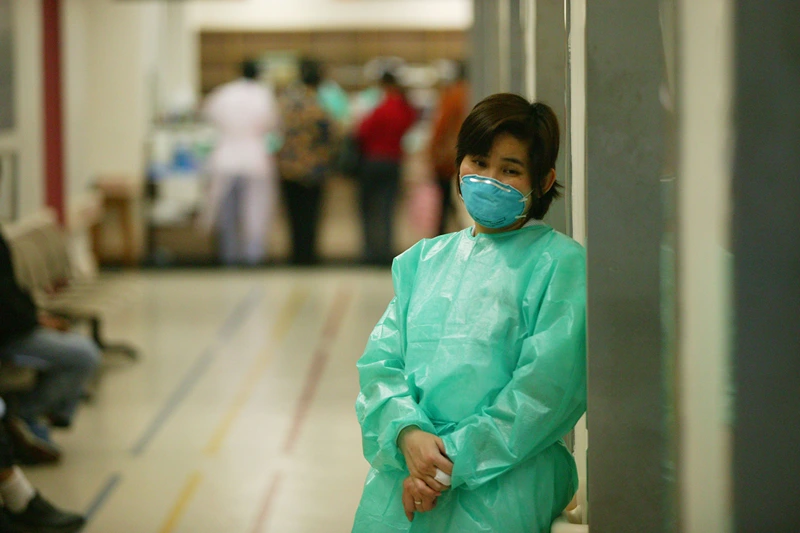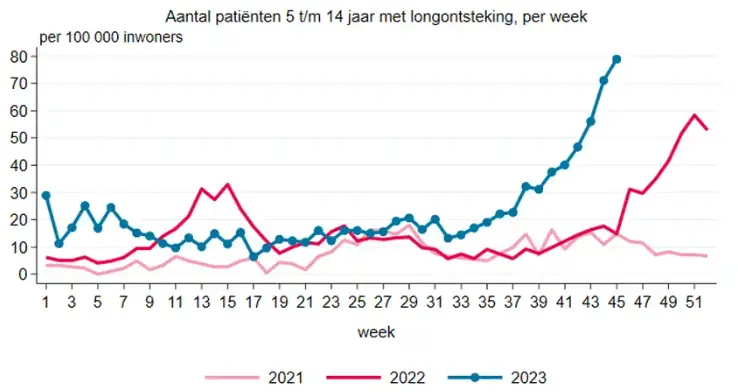

OAN’s Abril Elfi
12:30 PM – Tuesday, November 28, 2023
Childhood pneumonia cases are reportedly on the rise in the Netherlands at the same time that an outbreak in China has become extremely concerning.
Advertisement
During the past few weeks, pneumonia cases in the Netherlands have been increasing in children who are between the ages of 5 and 14 years old.
According to the Netherlands Institute for Health Services (NIVEL), during the week of November 13th to November 19th, there were at least 103 pneumonia cases in the Netherlands out of every 100,000 children, which was an increase by 83 cases from the prior week.
In the northwestern European country, cases among children under the age of four are also slightly increasing, ranging from 124 to 145 per 100,000.

There has also been an inexplicable rise in pediatric pneumonia cases and other respiratory infections in China at the same time.
According to a report released on Monday by ProMED, the worldwide digital disease surveillance system, Chinese hospitals that are mostly in Beijing are “overwhelmed with sick children” caused by the sudden pneumonia outbreak.
At a press conference on November 13th, officials mentioned that this is the first flu season since the nation loosened its stringent lockdown measures, and officials from the Chinese National Health Commission blamed the spike on the lifting of COVID-19 restrictions.
According to a statement on the World Health Organization (WHO) website, Chinese officials also linked the rise to the spread of other infectious diseases, such as the common flu, RSV, SARS-COV-2, and a bacterial infection called “mycoplasma pneumoniae.”
WHO released a statement on November 20th, saying that the organization had requested “additional epidemiologic and clinical information” from China, as well as laboratory results from the affected children.
“We have also requested further information about recent trends in the circulation of known pathogens, including influenza, SARS-CoV-2, RSV and mycoplasma pneumoniae, and the current burden on health care systems,” the WHO said in a statement. “WHO is also in contact with clinicians and scientists through our existing technical partnerships and networks in China.”
The WHO has advised residents in affected areas to minimize the risk of respiratory illness transmission by staying immunized, avoiding close contact with sick people, staying at home when sick, seeking medical attention when necessary, wearing masks when appropriate, and frequently washing hands with soap and warm water.
Stay informed! Receive breaking news blasts directly to your inbox for free. Subscribe here. https://www.oann.com/alerts





Be the first to comment